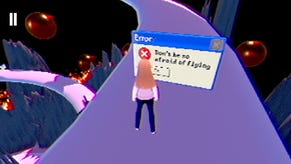"Right," Said Fred: Fredrik Wester Interview
As one of the nerdiest PC game publishers out there, it's only right that Paradox Interactive and RPS should be well acquainted. Look! Here's Paradox CEO Fred Wester talking on his new blog, The Wester Front, about why he loves the PC as a platform, with some hard stats as to why it's growing, not dying. That's interesting.
Anyway, I caught up with Fred at GamesCom for an excitable chat about the state of PC gaming, DRM, witch doctors, Paradox's growth and why complex games have fallen from the shop shelves in recent years. It was a good time. Read on after the jump.
RPS: So, early today you mentioned that when you heard GameStop were launching their own digital download service, you wanted to get in touch with them and tell them some of the lessons you learned the hard way.
FW: Yeah, it’s been a rough ride. Starting up an online retailer without knowing anything about retail? The thing is, with boxed retail, it’s all transaction based. They want you to come to their store, and then they never want to hear from you again. They can’t take care of the technical back-end, they can’t take care of the patches, they don’t really understand the full lifecycle of the game. That’s the first lesson they need to learn- “How do I provide gamers with a service after I get the transaction?”
It’s the most important thing to learn, but it’s also the hardest thing to learn. It’s a totally different... ah, paradigm. I love the word paradigm. I use it every time I can.
I actually had six different bulletpoints- “Things GameStop has to learn”. Kinda bombastic, right? I’m not gonna contact them though.
RPS: What else have you learned?
FW: You learn a lot about how other publishers work, about their opinions on the games, and you learn a lot about gamer behaviour. We ask the users on GamesGate a lot of questions, not just about the kind of games they prefer but how they like to download their games and how they want the experience to work. I think I’ve learned a lot about service. Paradox as a publisher doesn’t meet that many gamers. Except on the forums, where we’re only ever flamed or praised.
RPS: Still. Paradox, as a publisher, is quite close to its customers. [I’m referring here to Paradox’s use of fan-created content in its games and its happy support for modders.]
FW: We try to be close to our customers, without making it sound like bullshit. Because “close to our customers” can easily turn into corporate bullshit. But we want to be out there and discuss the features of our games, and get the feedback. I mean Hell, we’re just under 30 people working for Paradox, including our in-house development team and sales. It’s kind of a small company, and we sell hundreds of thousands of games every year, so collectively our gamers know far more about our games than we do in general.
RPS: It’s a very active community.
FW: I think a game like Victoria 2, for example, there’s just so much to discuss. The most popular part of our forum is still the After Action Reports, where people describe what they did in the game with screenshots and everything. And some of these are pure gold. It’s like reading a book. There’s not so many games where you can discuss for years and years how to play the game.

RPS: But that kind of complexity’s fallen off the game shelves recently. Why do you think that is?
FW: I think it’s the same as what happened in the film industry during the 60s and 70s, when all the indie guys were pushed off the shelves and only the big 5 were left. What’s been a blessing for the games industry is that at this point, digital distribution’s come into the equation as well, and we’re selling a lot of indie titles that otherwise would have received zero recognition. Take Minecraft. No publisher would ever touch, but the guy who created it probably made a lot of money anyway, and made a lot of gamers happy.
So, it doesn’t bother me that our games are being pushed off the shelves. We’re still shifting a Hell of a lot of units. It’s just moved online.
RPS: There’s some frustration building in the UK over the government’s lack of support for the games industry. How’s the Swedish government treatment of you?
FW: Politicians talk a lot and they do little. I think the problem’s universal. Of course it’s tough, because Canada has a head start with all the tax cuts, and luring over different development teams. We actually work with two teams in Canada.
Sweden has a policy of funding things like movies. I think the Swedish government gives $100 million each year to Swedish-specific movies, and most of them are never exported. They’re just exposed to the 9 million people in Sweden. All politicians in Sweden are very confused that we have development studios that sell games to a worldwide audience, and I don’t think they consider games “good enough” from a cultural perspective to receive funding.
They’ve been very slow in supporting us. They always come to our meetings and say “We wanna support you guys”, and I tell them that the two best way to support us is to put money into education for programmers, graphic artists and designers, and to provide tax cuts. But if you mention tax cuts to a Social Democrat, they will just throw you out of the room. The discussion ends there.
I read a report in the Harvard Business Review that the most important factor for entrepreneurship is lowering the capital tax. So, maybe it’s as simple as it.

RPS: But Paradox has experienced tremendous growth recently, no?
FW: We’ve grown ten times over in terms of gross revenue since 2004. And we spawned Gamers Gate, which is doing really great as well.
RPS: What do you put that growth down to?
FW: We’ve been very focused. We haven’t been lured into doing... Nintendo DS stuff. We haven’t got caught up in that “We have to be on console now!”
We’ve sold our games. We have our fans. We know what games they like. We know what games we want to produce. We’ve just added more games to the portfolio instead of spreading it out over consoles, which is actually a very high-risk business. If you release a box at retail you have to pay a licensing fee upfront for every game you print. You have to try and get the development fee back, and the license fee. And you don’t have control over everything either. MS and Sony need to have their seal of approval over everything.
RPS: So you’re shifting away from boxed products?
FW: I think this year we plan to have between 60 and 70 percent of our revenue as digital downloads. Course, releasing a title like Lead & Gold which is digital only helps with that equation, but when we release boxed games we expect the sales to be 50/50, boxed and digital.
RPS: And of course you recently unveiled Paradox Connect. Does everybody have to have achievements now, then?
FW: Yeah yeah yeah. Part of me agrees with you. If everyone launches their own service then you’re going to have 28 different people to work with for every game. But we just wanted the whole experience to be seamless. As much as I like Steam- I use Steam myself- I know a lot of people are turned off by the fact that you need to install a client. We’re completely web-based and voluntarily used. You can just play the game as normal, and if you want to connect your forum name to the service you’re welcome to.
We have a lot of exciting stuff planned for Paradox Connect that we just can’t talk about right now, because we don’t want to over-promise and underdeliver.

RPS: The whole thing mirrors your stance on DRM, which all Paradox games are free of, right?
FW: Yes. We left DRM three years ago. We saw that DRM caused crashes, made it harder for people to install the game on their machines, and we don’t want to put boundaries around people who’ve actually bought our game. If you purchase it, it’s yours, and you can do whatever you want with it. Ach- not, whatever you want- you can’t, like, create... you should be able to install it on multiple machines and download it again if you want to.
If you pirate our game, you probably get bad karma anyway. That’s our only DRM. Bad karma.
RPS: Have you employed a witch doctor yet?
FW: We’re thinking about it. We have a Sami population in Sweden which are an indigenous people living up North, and since I’m from that area I’m pretty well connected with all the medicine men up there.
RPS: I heard you guys were thinking about having negative achievements.
FW: Right.
RPS: I was talking to the producer outside, there.
FW: Right. Tom.
RPS: He said that you’d have some negative achievements to do with things like...
FW: Right.
RPS: ...playing the developers at the game.
FW: Right.
RPS: You haven’t heard about this.
FW: Right.
RPS: Have you?
FW: Nope.
[Laughter]
RPS: Right! Moving on...
FW: I’m always the last one to know in our office, though sometimes it’s the opposite as well. At the press conference this morning I was like- Reena (she’s our Vice President of sales)! He’s going to present a game you’ve never seen before! Don’t kill me! Like, how’s she meant to sell a game she’s never heard of?
I’m not surprised a company like Microsoft has bad communications. There’s thousands of people there. We’re a company of thirty and we still can’t communicate.

RPS: What does Paradox have in store for next year?
FW: We’re releasing three new free-to-play games next year. We’re experimenting and we’re not sure how it’ll turn out- we’re not sure of our business model yet, but we have a few very exciting online games coming out.
RPS: Are they existing brands?
FW: No. Wait-
RPS: ...!
FW: Well. Nah. But one of the games is... something... how do I put this? It’s gonna be very cryptic. It’s a type of gameplay that we’ve never touched before. And it’s a type of gameplay that’s completely different from what a computer game typically offers. We’re gonna announce it at mid-September, and I promise you, you’ll be the first to know, because I think it fits your audience very well. You have a lot of nerds.

RPS: We have a lot of nerds, yes. I mean, we are a lot of nerds.
FW: Fantastic. I love it. You know, I always read the comments on your site. There’s a nerdy, academic humour that I really like. I’ve actually commented anonymously a few times. I would never say “Fred Wester, CEO of Paradox”. Or maybe I will! Or someone else should start doing it in my time.
[The RPS readership should consider this a mass call to start leaving at least one comment from “Fred Wester, CEO of Paradox” on every single post.]
RPS: So, you let a girl from IGN shave your head during E3 because you got the advance figures as to how well Victoria 2 was selling.
FW: Yes. Also, I’d played the game and thought it was very solid. I have to say that, as I’m the CEO and I can’t sit here telling you it was a shit game, but after the Hearts of Iron 3 release which we say was really unstable- we weren’t really proud of that release, and thought we could do a much better job- I think we’ve improved our QA internally.
RPS: If Ship Simulator Extremes sells really well, what would you be willing to let a member of RPS shave off you?
FW: I could... I could shave my legs, for example. How do you do that? Waxing. You could wax, perhaps, half a leg?
RPS: Half?!
FW: I have pretty hairy legs, you know. That’s a bad thing. But yeah, you give me a sales figure and I could get you some exclusive footage.
RPS: Grainy footage of you shaving some part of your body.
FW: Or I’d have a body stand-in, like they do in Hollywood.
RPS: I’d know, Fred! I’d know.
FW: Ah.
RPS: Thanks for your time.









